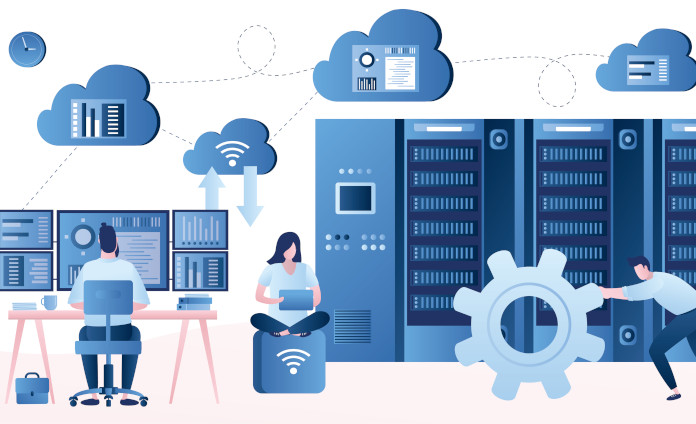Your business is growing, and your product is getting traction. Up to now, you’ve been leaving areas like infrastructure management and DevOps to whoever has the time and enough knowledge to keep it going. However, managing the environment is complex and demanding. Technical operations are difficult and time-consuming. You’re ready to find an expert to handle it.
A Common Scenario
- Stability or performance issues in production
- Developers are distracted by operations and need to focus on feature delivery
- Infrastructure costs are out of control
- Keeping up with security, patching, monitoring, and all the other daily tasks is causing frustration and concern
Your reasons could differ, but your question is probably the same: should you hire a full-time employee or partner with a Managed Service Provider (MSP)? Let’s examine why an MSP might be your best bet.
MSP Advantages to Your Business
1. Deep Expertise Ready to Help
An MSP brings a team of experts with specialized skills and experience in designing and operating complex environments. They stay up-to-date with the latest trends, technologies, and best practices, providing you with a level of expertise that is hard to find in a single employee.
Pro Tip: Ask potential MSP partners about their experience with your technologies. They should be able to talk intelligently about your specific environment.
2. Cost-Effective Services
Hiring a full-time employee involves not just salary but also benefits, training, and other associated costs. An MSP, on the other hand, offers a scalable service model where you only pay for the services you need.
Pro Tip: Look for an MSP that offers flat rate pricing on fixed services for your basic needs. You’ll save money and be able to ramp up to specialized services as needed.
3. Round-the-Clock Support
Cloud MSPs typically offer 24/7 support, ensuring that issues are addressed promptly, minimizing downtime. This level of support is often challenging and costly to achieve with an in-house employee.
Pro Tip: Any good service plan should include active participation in off-hours activities like patching and monitoring.
4. Risk Management and Compliance
Security is a moving target, and experts are needed to stay ahead of the shifting landscape. MSPs often have security experts to ensure that your cloud infrastructure adheres to the latest regulations and security protocols. If you have specific compliance targets like PCI, HIPAA, or SOC, then you want someone to stay on top of the regularly required tasks. All of this can be overwhelming for a single employee.
Pro Tip: Whether you are in a regulated environment or not, ask your MSP what security programs they’ve actively participated in. This will help gauge their general security mindset.
5. Focus on Your Core Business Functions
Outsourcing infrastructure management to an MSP allows your team to focus on your core business activities. This strategic shift in focus can drive innovation and growth rather than getting bogged down by the intricacies of server and service management.
Pro Tip: Even offloading basic activities like monitoring, backups, and patching can free up a lot of time and increase employee satisfaction. See if your MSP has an offering like that. It should be more affordable than a complete management package.
6. Scalability and Cost Savings
Cloud MSPs provide the flexibility to scale services up or down based on your business needs. This adaptability is a huge advantage, especially for businesses experiencing growth or fluctuating demands. You should quickly see performance improvements and even cost savings!
Pro Tip: Look for an MSP that doesn’t charge a percentage of your cloud or datacenter spend. This disincentivizes them from getting you the best deals.
7. Proactive Maintenance and Monitoring
MSPs have teams that proactively monitor and maintain your cloud environment. In-house employees may have so many tasks that they can only react to issues. The proactive approach can prevent problems before they occur, ensuring smoother operations.
Pro Tip: Ask your MSP what their monthly, quarterly, and annual maintenance recommendations are. There should be a clear, published, and accountable plan.
8. Strategic Partnership
An MSP acts as a strategic partner, helping to plan and execute your cloud strategy. Their insights and guidance can be invaluable in optimizing your cloud environment for maximum efficiency and performance.
Pro Tip: Even after you start building an in-house operations team, a good MSP partner can continue to fill skill gaps, and take on the time-consuming and unfulfilling roles that your employees don’t want.
Conclusion
Choosing an MSP over a full-time employee offers numerous advantages, including cost savings, expertise, 24/7 support, and strategic guidance. As technologies continue to advance, partnering with a specialized MSP can be a smart move to stay ahead of the competition, ensuring that your infrastructure is robust, efficient, and aligned with your business objectives.


